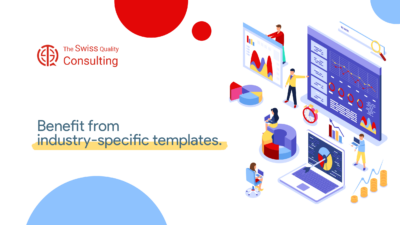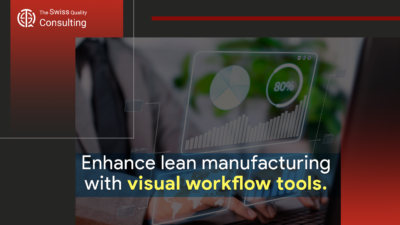Enhancing Business Efficiency with Adaptive Workflow Templates
Introduction
In today’s fast-paced business environment, adaptive workflow templates have become essential for companies seeking to maintain agility and competitiveness. This article aims to provide business executives, mid-level managers, and entrepreneurs with an understanding of how these templates can transform their operations.
Understanding Adaptive Workflow Templates
In the dynamic and ever-evolving business landscape of today, organizations face the constant challenge of adapting their processes to keep pace with changing market conditions, customer demands, and technological advancements. Adaptive workflow templates have emerged as a transformative solution, providing organizations with the flexibility and agility they need to streamline their operations, enhance efficiency, and achieve sustainable success.
Unlike traditional workflow templates that are rigid and inflexible, adaptive workflow templates are designed to be dynamic and adaptable, allowing organizations to modify their workflows on the fly without disrupting their overall operations. This adaptability stems from the use of modular components and configurable parameters, enabling organizations to tailor their workflows to specific needs, accommodate exceptions, and respond to unforeseen changes.
The benefits of adaptive workflow templates extend beyond mere flexibility. They empower organizations to:
• Streamline Processes: By automating repetitive tasks and eliminating manual handoffs, adaptive workflow templates streamline processes, reducing time-to-completion and improving overall efficiency.
• Enhance Collaboration: Adaptive workflow templates facilitate seamless collaboration among team members, ensuring that tasks are assigned, tracked, and completed efficiently.
• Improve Decision-Making: Real-time access to data and insights embedded within adaptive workflow templates empowers decision-makers to make informed choices based on the latest information.
• Reduce Errors: Automated tasks and structured processes minimize the risk of human error, ensuring accuracy and consistency in operations.
• Adapt to Change: The flexible nature of adaptive workflow templates enables organizations to quickly adjust their workflows in response to changing market conditions, customer demands, or regulatory requirements.
In essence, adaptive workflow templates have revolutionized process management, providing organizations with the agility and flexibility they need to thrive in today’s dynamic business environment. By embracing these transformative tools, organizations can streamline operations, enhance efficiency, and position themselves for sustainable growth and success in the ever-changing world of work.
Flexibility and Efficiency: The Core Benefits
The primary advantage of adaptive workflow templates lies in their flexibility. They enable businesses to modify processes without the need for extensive overhauls, saving time and resources.
Impact on Change Management
Change management is critical in today’s business landscape. Adaptive workflow templates empower organizations to implement changes swiftly, reducing resistance and enhancing overall adaptability.
Case Studies: Successful Implementation
Several case studies illustrate how companies have successfully utilized adaptive workflow templates to navigate complex change management scenarios, highlighting their effectiveness.
Role in Executive Coaching and Leadership Development
In executive coaching sessions, adaptive workflow templates are increasingly being recognized as vital tools for developing future-ready leadership skills. They encourage a mindset that is adaptable, proactive, and responsive to change.
Integrating Templates into Leadership Strategies
Leaders who understand and leverage these templates can drive their teams towards higher productivity and innovation, making them invaluable in leadership training programs.
Enhancing Communication and Project Management
Effective communication and efficient project management are central to business success. Adaptive workflow templates facilitate clearer communication channels and more organized project management, leading to better outcomes.
Real-time Updates and Team Collaboration
These templates enable real-time updates and enhance team collaboration, ensuring that all members are on the same page and can adjust their work accordingly.
Generative Artificial Intelligence and Workflow Optimization
The integration of Generative Artificial Intelligence (AI) with adaptive workflow templates is a game-changer. It brings a level of automation and intelligence to workflows, making them more efficient and predictive.
AI-driven Analytics for Enhanced Decision Making
Generative AI can analyze workflow data to provide insights for further optimization, aiding in strategic planning and decision-making processes.
Conclusion
Adaptive workflow templates are not just tools; they are essential components for achieving business agility and success. They offer a pathway for businesses to stay dynamic, responsive, and competitive in an ever-changing market.
#AdaptiveWorkflowTemplates, #BusinessAgility, #ChangeManagement, #ExecutiveCoaching, #ProjectManagement






















